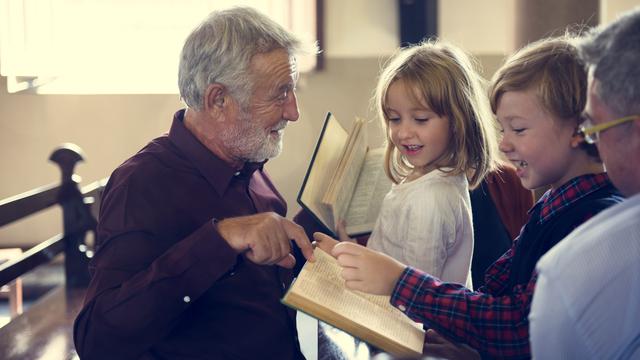The purpose of freedom is bigger than freedom. The point is to be free for something, for someone. Rights start with the individual but do not end there. We find our truest selves in families, friendships, neighborhoods, causes and congregations. These two sides of freedom — self and community — reinforce and give meaning to one another.
We all have rights simply because we’re human. They are inherent and inalienable, not merely a gift from those who happen to be in power.

In 1948, after World War II and the Holocaust, leaders from nations around the world came together to establish the Universal Declaration of Human Rights. This document affirms that every person — regardless of religion, race, gender or nationality — possesses the right to life, liberty, security, equal protection of the law and freedom of thought, speech and religion. Though not always honored, the declaration provides moral norms for how people should be treated in international law and national constitutions.
These rights both entitle us and obligate us — we deserve dignity for ourselves and owe respect toward others. We cannot talk about rights without talking about responsibilities. And we cannot talk about responsibilities without being part of a community. Human rights point beyond ourselves to relationships with others. The affection that binds people together is not motivated by entitlements, but obligations.
It does little good to be alone in our freedoms.
As a set of common principles, human rights represent a great achievement. But principles don’t enforce themselves. It is soft institutions like churches, not international legal bodies, that practice and exemplify the work of community building. Gerald Filson, public affairs director of the Baha’i in Canada, said religions make an “enormous contribution to social well-being, to health, to education, to family stability to a range of positive forces in society, and do that by relying, not on rights, but on their virtues of sacrifice, generosity, love of the divine, and so forth.”[1]
Religion is a school for social capital. It teaches people the habits of human connection, teamwork and problem-solving. Believers create charities, soup kitchens, homeless shelters, orphanages, hospitals, medical missions, youth groups and contribute to humanitarian aid, disaster relief and service projects for the poor and elderly. This unique combination of resources undergirds the aspirations of human rights and supports the work of governments. And, in the words of scholar Dan McKanan, “strong faith communities give their members strength to challenge injustice in the larger society.”[2]
Freedom of religion or belief, therefore, is a foundational human right. Without it, says legal scholar Brett Scharffs, “the entire human rights project may collapse from its own weight.”[3]
It’s easy to think that human rights happen in some distant court or deliberating body. But Eleanor Roosevelt, chair of the first UN Human Rights Commission, said they begin “in small places, close to home — so close and so small that they cannot be seen on any map of the world. Yet they are the world of the individual person: The neighborhood he lives in; the school or college he attends; the factory, farm, or office where he works. Such are the places where every man, woman, and child seeks equal justice, equal opportunity, equal dignity without discrimination. Unless these rights have meaning there, they have little meaning anywhere.”[4]
These small places do more than occupy our time and labor; they also train the soul. “We do not begin to approach a solution of our problems,” she wrote, “until we acknowledge the fact that they are spiritual.”[5] Rights don’t work without responsibilities. And responsibilities don’t work without higher purpose. Acting on the mysterious and sacred duty we feel one toward another is the glue of society.
[1] Gerald Filson, “Interreligious Cooperation, Religious Rights and Pluralism,” presented at the 2016 Annual Symposium of the International Center for Law and Religion Studies of Brigham Young University, Oct. 2-4, 2016.
[2] See Dan McKanan in “How Religion Strengthens Community,” Zocalo, Oct. 19, 2010.
[3] Brett G. Scharffs, “Why Religious Freedom? Why the Religiously Committed, the Religiously Indifferent and Those Hostile to Religion Should Care,” Social Science Research Network, Feb. 4, 2017.
[4] Eleanor Roosevelt, “Where Do Human Rights Begin?” in Courage in a Dangerous World, ed. Allida M. Black (2000), 190.
[5] Eleanor Roosevelt, “Where Do Human Rights Begin?”, 50.